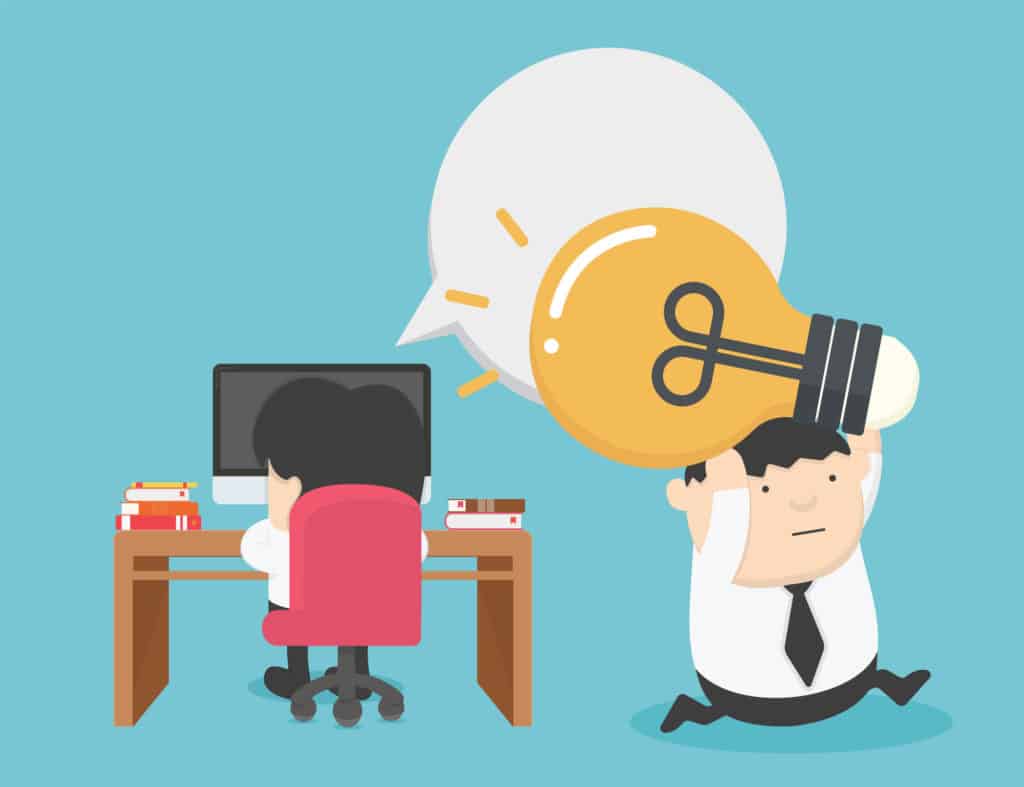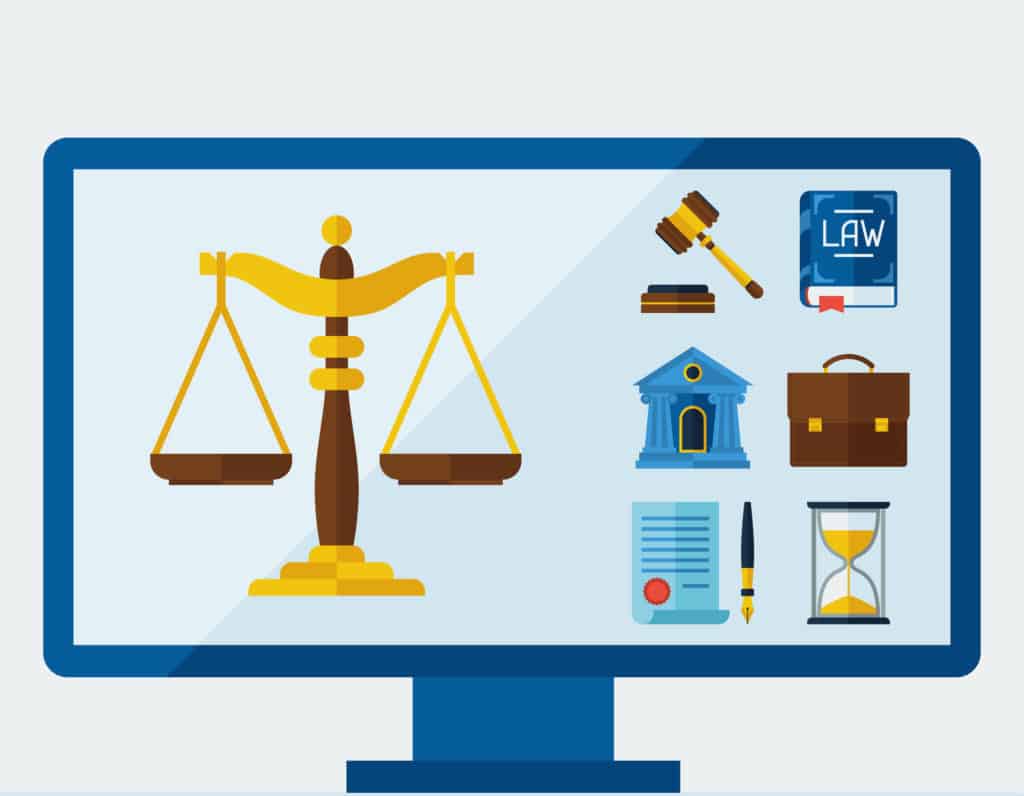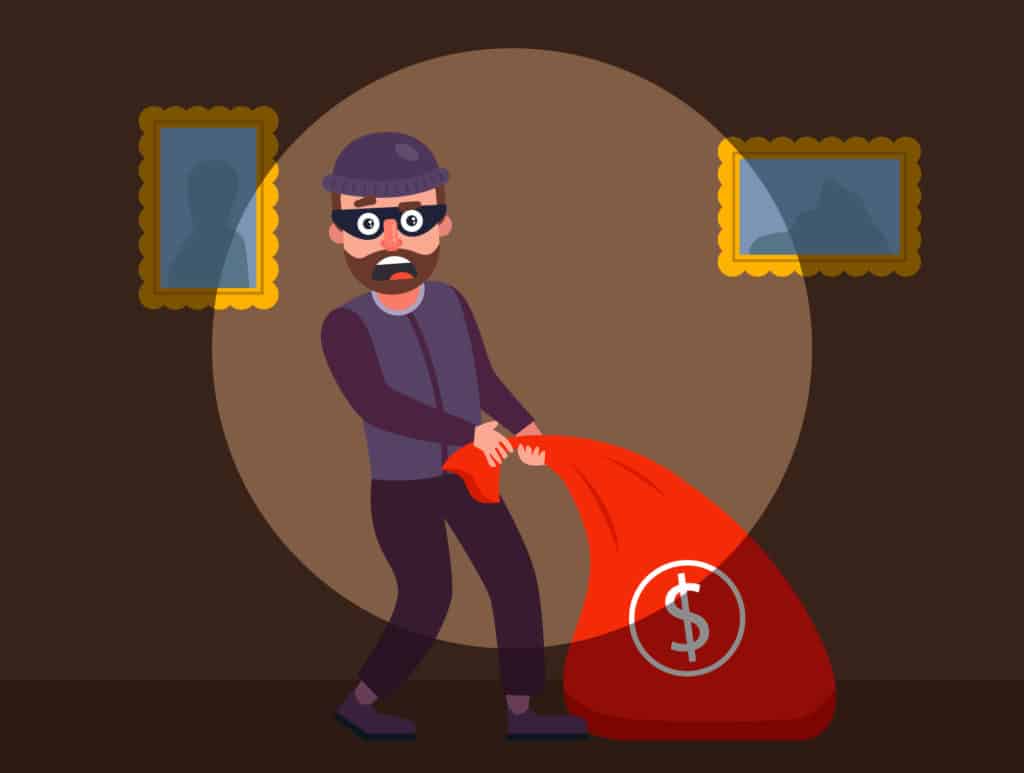
Digital Copyright Laws are misunderstood or ignored by most internet users, but it’s well established that online theft is still theft. ‘Borrowing’ online content is illegal – fact. Here’s what you can do when someone steals your content.
The internet has laws. Who would have imagined that? The lawless digital world isn’t quite the rule-free paragon it once was. Online ‘things’ are now considered property. It’s no longer a free-for-all.
While Berners-Lee’s internet may have been a black hole for ambiguous copyright laws back when the digital landscape was in its infancy, various Courts of Law have now ensured that users cannot take content originating from other sources without strict permission from the author.
More On This Subject From DRPT
Is Duplicate Content Bad For My SEO?
The Dangers Of Stealing Content And Plagiarism
Think Twice Before Using An Image Of Unknown Origin
Charlie may have bitten Harry’s finger, but it’s nothing compared to the lawyer’s bite should you ‘reuse’ that video for your own means – as it’s now an NST; also known as a digital asset that belongs to the highest bidder.
Problem is, there’s still a general public consensus that ‘everything online is free to use’. Especially in terms of written content. That easy motion of ‘copy’ and ‘paste’ means that, if someone has use for your content, it can be lifted in a matter of seconds.
You no longer require blagger’s gear, a getaway Jaguar, and a retro soundtrack for a criminal lifestyle. You simply require a keyboard and mouse. And complete ignorance towards online content laws.
It’s this lack of knowledge that leads people down the wrong path, but that doesn’t make theft any easier to swallow for those who crafted the content in the first place. There is no excuse for others to profit from your efforts.
We’ve been there and suffered the pain of discovering that someone has plagiarised our content. You’ve spent considerable time and effort getting content to a stage where the research, writing effort, and time invested is justified. Only for an idle scrounger to swing in and steal it.
We’ve encountered situations where our SEO-heavy landing pages, blogs, and marketing material has been copied and pasted by another party for their business use and profiteering.
But what can you do about it? And how can you tell if someone out there – in one webpage among brillions – has stolen your work?
How To Tell If Your Content Has Been Stolen

It’s impossible to trawl the web purely in search of your own content. There are an estimated 4.2 billion web pages out there (as of June 2021). Even if you spent a lonely second on each page, you’d be looking at 133 years of unbroken effort – without a break or sleep.
But never fear, as some really good tools allow the internet bots to scan for you. One of the simplest – and best – tools is Google Alerts.
You can head over to the Google Alerts website, put in your content, select what kind of websites should be scoured for your potential content, and supply your email address so Google can send you the results. The best part? It’s a free service!
You aren’t limited to only one alert, either – you can have as many as you like, and adjust the settings for daily or weekly updates. If you’d rather have ‘as it happens’ real-time results, then Google can accommodate your request without protest.
The other option that we would recommend is Copyscape. Now, unlike Google Alerts, this service is not free for Premium results, but it’s worth spending some business expenses on.
Simply type in your website’s URL and Copyscape will search billions of online sources on the hunt for websites reposting your hard-crafted content. In only a matter of seconds, you’ll see who has plagiarized your work.
A lesser-known, albeit just as powerful, tool for catching theft are ‘trackback notifications’. These notifications will alert you when someone links to your post, and are provided automatically by the likes of WordPress.
While a link back isn’t always a sign of plagiarism, if one particular site is linking to you on a regular basis, there is a real chance that they are lifting your content for their own purposes.
So, you’ve identified someone who has been casually profiteering from your content. Now what?
How To Remove Your Content From Another Website

The most obvious course of action is to reach out and contact the offending website in question. Rather than threatening them with death or a lawsuit, you should get in touch and request that any stolen content be removed.
If you can’t find a ‘contact page’ for the offenders, then try Google My Business, or other business citation websites. There’s usually an email address lurking for everyone somewhere!
Of course, you need to expect that most webmasters and bloggers will ignore your emails regarding content theft. To them, ignorance is bliss. If they don’t acknowledge your email, then there is no problem. You will go away eventually and the status quo shall be maintained.
However, others will take down your content when asked – especially if you threaten them with legal action (even if you don’t plan on actually engaging the lawyers).
Should your emails go unactioned by content thieves, the next stage is to contact the website’s hosting service. Again, delving into the depths of the internet in search of the culprit’s hosting site will take blind luck and hours of your time. There is an easier way.
One of the hardest parts of fighting plagiarism is determining the host of a website.
Courtesy of the WHOIS tool, you can type in the URL of any site and unearth the hosting servers. Once you have identified the host, you can contact them with your complaint.
And don’t panic, registering a complaint with the web host isn’t a ‘Karen move’. It’s your hard-grafted content, and you are entitled to have it removed and protect your business. The web hosts always understand this, and they will often act swiftly and efficiently to remove duplicate content.
It’s been known for web hosts to completely remove, take down, or disable an entire website if they have taken your content without permission.
The waters can become muddy if you have shared your work on an article-sharing website, though. Some internet users feel this means you are sharing your content for them to employ as they wish. However, article-sharing sites are quick to act on plagiarism and will delete the offender’s account if necessary.
You should contact the site’s administration team and provide a link to your original content, alongside making it clear that you are the content’s original author. The more information that you can supply, the better – such as publication date, commissioning editor, and edit history.
Once the site administrators are aware, and you have alerts set up, then this problem can be easily rectified in future when (not if) others steal your stuff.
Should you still have an issue getting duplicate content removed, there is a more direct and serious approach that can be taken.
It’s Fun To Stay At The D.M.C.A

Sadly, this isn’t a digital rendition of the Y.M.C.A by The Village People. It’s a bit more gruff and scary than that.
When you grow weary of being polite and contacting web hosters and administrators, you can go all Clint Eastwood with a DMCA (Digital Millennium Copyright Act) complaint.
Filing a DMCA complaint against a website can be undertaken via Google Webmaster Tools. It’s not a quick and easy procedure, and you need to have concrete proof of plagiarism, but once completed and Google is on the case then your thief’s days are numbered.
If Google deems your case valid after a complex investigation, the offending website can be forcibly removed from Google’s rankings and banned forever.
It’s because of this outcome that we’d recommend filing a DMCA complaint only as a last resort. If someone is ranking higher in the SERPs (Search Engine Results Pages) with content stolen from your mediums, then a DMCA complaint should solve the issue – and prevent thieves from abusing your content in future.
There is one extra step that Google takes, should an individual or company have made money from your content through Google Ads. Their account will be terminated, and the guilty party will be prevented from opening a subsequent Google account.
It’s a pretty serious process and not one to be employed simply because it proves a point.
Can You Stop Your Content From Being Stolen In The First Place?

It’s practically impossible to stop this situation from happening. Earlier on in this article we mentioned ‘when’, rather than ‘if’. That’s largely because everyone is open to having their content stolen – it’s just a matter of time. It’s one of the rites-of-passage offered by our contemporary world.
While there is no way of preventing content theft completely, there are a few things that you can do to protect yourself.
You can reduce the odds of someone stealing your content by providing a clear and consistent copyright notice, alongside a Terms of Use segment on your site. This statement should scare off the ‘copy and paste, job done’ brigade and stop less-knowledgeable persons from using your content without your express permission.
Google can provide some extra backup with their Search Authorship scheme, too. It’s an algorithm that proves you are the original author of your content.
Should some vagabond lift your content under the Search Authorship scheme, Google will demote their rankings and ensure you rank above them.
How does this go about? Well, there’s information added to each content page you have written. This allows Google to know that it’s yours. There’s also a method – through customised RSS script – to ensure a link to your original article is automatically posted alongside your ‘borrowed’ or blatantly stolen content.
That link won’t always stop those hell-bent on using your content for their own gain, but it does allow the truth to be shown!
Boiled Down…

Ever since the birth of the internet, content plagiarism and theft has been a big issue. The digital world used to be an all-consuming wasteland when it came to copyright law. That waste ground has now had laws applied upon it – but it doesn’t stop people from being ignorant or downright illegal.
While you can remain vigilant to protect your copy and content, there are various steps you can follow to hunt down and reclaim what was originally yours. Just be prepared to spend time and effort on your quest.
You can be polite and email the thief with a gentlemanly option to take the duplicate content down.
You can be forthright and persist in legal action.
Or you simply rat them out to Google and watch as old Mother G assassinates their online profile with gusto.
It might all seem laborious, but it will be worth it. Trust us on that one.
Got any questions about content theft? Get in touch with us through our contact page – we can help you!








